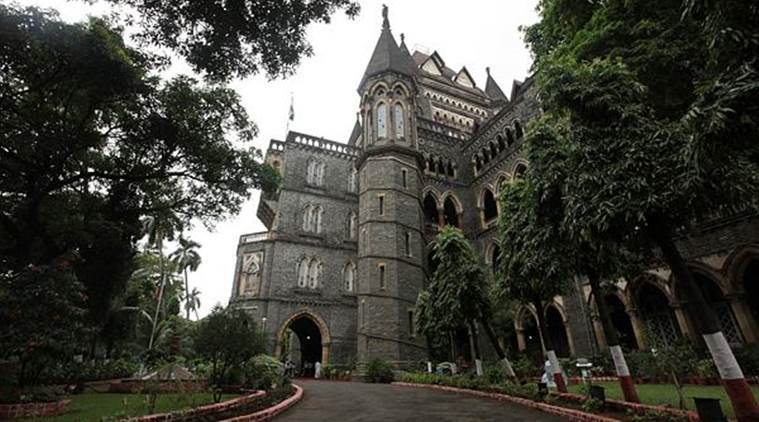GR refusing fee reimbursement to non-CAP admissions discriminatory: Bombay HC
 The state government’s assertion that the students secure admission through non-CAP only after their failed attempts through CAP, the court observed, was “a sweeping statement, besides being inaccurate”. (File)
The state government’s assertion that the students secure admission through non-CAP only after their failed attempts through CAP, the court observed, was “a sweeping statement, besides being inaccurate”. (File)
Striking down a 2013 state government resolution (GR) under which Scheduled Caste, Scheduled Tribe and Other Backward Classes (OBC) could not seek reimbursement of tuition fees if they were not admitted to professional courses under the Centralised Admission Process (CAP), the Bombay High Court on Friday observed that “unjustified classification amounts to indefensible discrimination”.
Twenty-six SC, ST, OBC and other disadvantaged group students had petitioned the High Court in 2014 challenging the GR of February 27, 2013, applicable to that academic year. The students, admitted to engineering courses at the Dwarkadas J Sanghvi College of Engineering, a linguistic minority institution in Vile Parle, were admitted through the government-monitored Pravesh Niyantran Committee, headed by a retired High Court Judge, and not through the Centralised Admission Process (CAP) under which students are admitted to engineering colleges in the state based on their Common Entrance Test (CET) rank.
A full bench of Justices A A Sayed, Dama Seshadri Naidu and P D Naik declared that the contested GR was “arbitrary and discriminatory”.
Ruling in favour of the students, represented by senior counsel Birendra Saraf, the court directed the government to “reimburse the education fees and the examination fees (already paid or yet to be paid by the students) to the petitioners”.
In their 75-page judgment, the judges wrote, “A boy began the battle. It was in 1856.” With the reference to Mahatma Jyotirao Phule, the pioneering Dalit social reformer, the judges also observed, “From then on, we have travelled far, but not far enough. Still access to education depends, among other things, on the student’s economic strength. Socially and economically speaking, the weaker the student is, the farther he is from quality education.”
The Maharashtra government had implemented the policy of fee reimbursement to SC, ST, and OBC students pursuing their professional courses in the state, but through the 2013 GR, the government restricted this benefit of fee reimbursement to only those SC, ST, and OBC students who had taken admission through the CAP. This distinction between SC and ST students admitted through CAP and those admitted otherwise, Saraf argued, was tantamount to creating categories in the castes enlisted under Article 341 of the Constitution of India and is illegal.
“The government claims, rather self-certifies, that CAP is transparent, well-documented, well-regulated, and non-discriminated. Appreciably so. But does that mean the admissions through non-CAP are ‘not transparent, not well-documented, not well-regulated, and discriminated’? Even the government has not alleged so. It has proclaimed CAP as good, yet it has not denounced the non-CAP admission as deficient or defective. Further, all along, the admissions through non-CAP, too, are under the strict supervision of the state-appointed commission. They are neither unchecked nor unregulated,” the court observed.
The full bench observed, “We may accept that an objective-oriented classification with intelligible differentia sustains itself. But every microscopic difference cannot be pressed into service.”
The judgment read, “By providing the fee reimbursement, among others, to the SC students, what has the government sought to achieve? We reckon the fees reimbursement is a facet of affirmative action. The ‘reservations’ is a correctional policy, not a concessional one. For integrating a historically, socially, and economically marginalised section into the ‘mainstream’ society, education is the sure-fire device.”
The judges observed, “A method of admission cannot be treated as legal for one purpose and illegal for another purpose. Here, the students legitimately, lawfully get admitted through the institutional method (non-CAP) of admission. They suffer no discrimination otherwise on that count. Then, we fail to understand how the government can brand non-CAP admission as deficient for extending a beneficial scheme”.
“Pursuing courses — technical ones at that — with poverty hard on a student’s heels is no easy task. As the students from the marginalised sections move up in the education ladder, their proportionate representation falls. There are more dropouts. One of the reasons for that, it seems, is the financial constraints those students face. And precisely for this reason, the government has come up with the beneficial policy of financial help to those students. Indeed, this governmental policy is need based, not merit based. Even otherwise, the government has failed to demonstrate before us that those that get admission through non-CAP are less meritorious. CAP and non-CAP admissions are two modes of admission with legitimacy and legality. With no demonstrable data, we cannot conclude that one is superior to the other,” the court said.
The state government’s assertion that the students secure admission through non-CAP only after their failed attempts through CAP, the court observed, was “a sweeping statement, besides being inaccurate”.
The case was referred to the full bench after two division benches of the High Court had taken contrary views over the issue. While the government had sought an eight-week stay on the order, the judges refused to stay the order and asked the government to implement the scheme in eight weeks and extend the benefit to the 26 petitioners as well.
📣 The Indian Express is now on Telegram. Click here to join our channel (@indianexpress) and stay updated with the latest headlines
For all the latest India News, download Indian Express App.
- Tags:
- Bombay High Court
tinyurlis.gdu.nuclck.ruulvis.netshrtco.de
